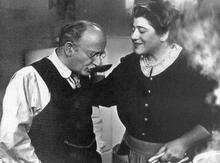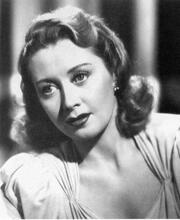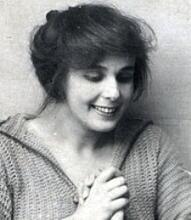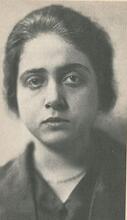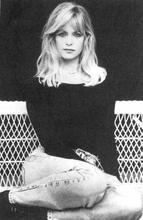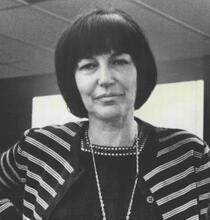Isabelle Huppert
Photo of Isabelle Huppert in 2010, courtesy of Wikimedia Commons.
Isabelle Huppert has achieved international stardom for her ability to play geniuses, madwomen, criminals, and other larger-than-life heroines. Huppert honed her skills at the Versailles Conservatoire and the Conservatoire National d’Art Dramatique and gained international attention for the 1977 film The Lacemaker. Huppert has won many awards, including two Cannes Festival Awards, two Golden Globes, and a Venice Film Festival Award. I Heart Huckabees in 2004 gained her an American following, and in 2016 she won her second Golden Globe for Elle. Alongside her film career, Huppert has maintained a successful theater career and earned seven Molière Award nominations. She was given the French Order of Merit in 1994 and the Legion of Honor in 1999 for her contributions to the arts.
Early Life and Family
One of the most famous and most popular French actresses of her generation, Isabelle Anne Huppert was born on March 16, 1953, to a well-to-do family. Her father Raymond was an industrialist, and her mother Annick an English teacher. Huppert is the youngest of their five children, four daughters and one son, all of whom took up professional or artistic careers: Jacqueline (b. September 30, 1944) is an academic scholar; Elisabeth (b. June 20, 1948), a former director, actress, and writer; Caroline (b. October 28, 1950), a script-writer and director. Rémi is an author. With her gifted siblings, Huppert spent a protected childhood in a residential neighborhood near Paris. After high school at the St-Cloud Gymnasium, Huppert studied Russian at university and earned a B.A. Encouraged by her parents, she went on to study theater at the Versailles Conservatoire and received the first prize there. She spent one year at the famed Rue Blanche theater school and then entered the prestigious Conservatoire National d’Art Dramatique. Thus began a theatrical career that Huppert has never given up, despite her demanding work for the cinema.
Isabelle Huppert has three children: Lolita (b. October 1983), Lorenzo (b. 1986) and Angelo (b. August 1997), whose father, Ronald-Ariel Chammah, directed her in the film Le Milan Noir (Black Milan 1987) and whom she married in 1982. Lolita, the eldest daughter, has appeared in three films with her mother and has begun an autonomous career as actress.
Film Career
Huppert was hardly seventeen when she appeared for the first time on the screen in television plays as well as in films. She was cast mostly as an adolescent, sometimes already led astray, sometimes still radiant with childish purity. She was lucky enough, she has said, to work from the outset for well-known directors like Claude Sautet, Bertrand Tavernier, and Otto Preminger. She also acted for young newcomers like Bertrand Blier in his provocative Les Valseuses (Going Places,1974) and even with avant-garde “auteurs” such as Alain Robbe-Grillet.
Huppert gained international fame with La Dentellière (The Lacemaker, Claude Goretta,1977) as Pomme, the innocent but luminous “mute soul” who loses her sanity when she is forsaken by the glib student she loves. In an interview, she remarked: “Not long before, I realized that in my childhood, I was very impressed by two tales of Hans-Christian Andersen: The Little Mermaid, and The Little Match Girl… I’m surely identified closely with these two little girls who are a bit like the predecessors of The Lacemaker…I let myself very easily become fascinated by characters of fiction…my attraction toward some of these characters goes very far.”
Shortly afterward, Huppert started a most fruitful collaboration with the renowned and prolific director Claude Chabrol. At the age of twenty-five, she won the highest distinction that an actress can hope for, the Best Interpretation Award in the Cannes Festival International Competition, for Violette Nozière (1978). From then on, she played on screen, and mostly for Chabrol, some French female characters who earned dubious fame. Violette Nozière, who had conducted a double-life as the obedient daughter of a lower middle-class couple and a corrupt kept woman, was tried for having poisoned her parents. For Une Affaire de Femmes (Story of Women, 1988), which received the Golden Globe for the best foreign film, Huppert won the Best Interpretation Award at the Venice Film festival. Based on another famous trial, this film depicted the story of Marie, an occasional abortionist in Occupied France who was sentenced to death by the infamous Vichy Regime. On her performance, which impressed the critics for its versatility in expressing so powerfully the duplicity of a human soul, Huppert commented: “We both (with Chabrol) agreed that it was about someone at once profoundly moving, completely disgusting and entirely pitiable” This defi.nition seems to fit many of the characters interpreted by Huppert from Violette, through Jeanne in La Cérémonie (A Judgement in Stone, 1995), to Mica in Merci pour le Chocolat (Nightcap, 2000), all of them directed by Chabrol.
Along with these ambiguous creatures, Isabelle Huppert has also played the great names of French literature, from The Lady of the Camelias (Mauro Bolognini, 1981) to Madame Bovary (Claude Chabrol,1991). She has played Anne, one of The Bronte Sisters (André Téchiné, 1979), as well as Marie Curie (Les Palmes de M. Schutz, Claude Pinoteau, 1997). She has made films with the most famous French directors including Jean-Luc Godard, Maurice Pialat, the young François Ozon, and political exiles like Joseph Losey and Raul Ruiz.
Versatility and International Film Work
Huppert likes to work outside France—one of the three films she makes every year is foreign—and to confront different forms of filmmaking. She made some films in Hollywood, among them Heaven’s Gate (1980), Michael Cimino’s ill-fated saga, but she works mainly in Europe. Elective Affinities (1996) was adapted from Goethe by the brothers Taviani, and Huppert’s reputation as an “intellectual” actress results, she says, from the fact that she has often been chosen by so-called “difficult” directors. Werner Schroeter, for example, directed her three times, and for her role in Malina (1991), he introduced her to the writer Elfriede Jelinek, who adapted her own text for the screen. Some years later, in 2001, she interpreted another of Jelinek’s tormented and violent heroines in La Pianiste (The Piano Teacher), directed by the Austrian Michael Haneke. For this role, Isabelle Huppert became the only actress in the history of the Cannes Festival to have twice won the Best Interpretation Award. And in 2004, Elfriede Jelinek became the recipient of the Nobel Prize for Literature.
While she is a versatile actress open to all kinds of experiments, Huppert defines herself not as an artist, but as an ‘explorer.’ At the same time, she delights in acting in comedies and in mainstream productions. In addition, Huppert’s presence has encouraged the first cinematic attempts of many young directors, mostly women, such as the successful Les Soeurs Fachées by Alexandra Leclère (2004). Similarly, some years ago she appeared in Diane Kurys’s famed autobiographical film Coup de Foudre (Entre nous, 1983). Interestingly, this story of two young women, both victims of World War II, who decide to leave their dull husbands and live together, was received differently in the United States and in Europe. In the former, scholarly research regularly cites the film for illustrating so cogently the emerging consciousness of the homosexual condition. In France, this aspect of the film went almost unnoticed, yet Entre nous shockingly revealed the existence of concentration camps (internment camps as they were called) on French soil during the German Occupation. Jews had been assembled and confined there until their deportation to a destination unknown. The film reflects the general lack of awareness by having Lena Weber (Isabelle Huppert) and her husband relate, after the war, their vicissitudes under the Vichy regime to their ignorant new French friends.
Theater and Autobiography
In the theater, Isabelle Huppert continues to work with the most esteemed directors, like Bob Wilson or Claude Regy, appearing as Orlando, as Medea and in other leading roles. She has helped bring Sarah Kane’s Jewish-British voice and her biblical prophetic vision of a doomed world to a French audience.
Some years ago, the revered film journal Cahiers du Cinema asked Huppert to write her Autoportrait(s). This uncommon enterprise includes interviews she conducted with her favorite artists and writers as well as recollections of actors and directors with whom she has worked. While these different texts present their “autoportraits,” they also convey the fascinating personality of an intelligent, cultured and accomplished woman who sums up her art with utmost simplicity: “Je ne joue pas des personnages, je joue des personnes” (I don’t play characters, I play persons), adding, “Every film you make is a form of rebirth, not just on screen.”
Awards
1977 British Academy Awards—Outstanding Newcomer (La Dentellière).
1978 Cannes Festival Awards—Best Actress (Violette Nozière).
1988 Venice Festival Awards—Best Actress (Une Affaire de Femmes).
1990 Moscow Festival Awards—Best Actress (Madame Bovary).
1990 Berlin Bundespreis—Best Actress (Malina).
1996 Venice Festival—Volpi Cup for Best Actress (La Cérémonie).
1996 Cesar—Best Actress (La Cérémonie).
2001 Cannes Festival Awards—Best Actress (La Pianiste).
In 1999, Isabelle Huppert was awarded the prestigious “Légion d’Honneur” by the French Minister of Culture.
Douin, Jean-Luc. Comédiennes Aujourd’hui Paris: 1980.
Les Cahiers du Cinema, n477, Mars 1994, Special Feature: Isabelle Huppert, Autoportrait(s). Reprinted as a book in 2004. Positif, n495, Mai 2002, Special Feature on French Actresses.


